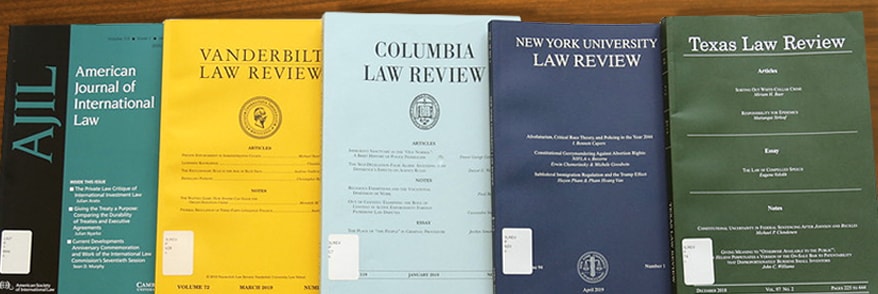
Brooklyn Law School faculty members are engaged in scholarly work on critical issues in the law and policy. Their nationally recognized scholarship is published in top law reviews and has a substantial influence in the legal community and beyond. Their work has been cited by courts, including the U.S. Supreme Court, shapes law and policy across the country, and fuels the dynamic intellectual life of the Law School.
Latest Faculty Scholarship
William Araiza
Stanley A. August Professor of Law
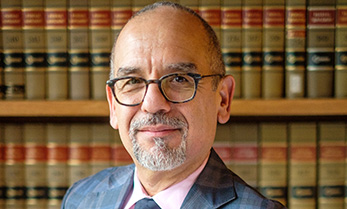
One-Offs, 109 Cornell L. Rev. 263, (2024)
Araiza examines the phenomenon of "one-offs": court opinions that are rarely cited by the issuing court, and that that do not explicitly generate further doctrinal development. His analysis of three such cases from the U.S. Supreme Court finds they play a surprisingly legitimate role in legal and doctrinal development.
Miriam Baer
Vice Dean and Centennial Professor of Law

Corporate Compliance's Achilles Heel, 78 Bus. Law. 791 (2022-2023)
Since the 2002 enaction of Sarbanes-Oxley, corporate compliance has become an essential, universally respected corporate governance function. Yet its future may be compromised by rising political polarization, which can disrupt information flow and imperil the prompt detection and redress of wrongdoing in workplaces and government enforcement institutions. Baer contextualizes this problem and explores several of its manifestations.
Square-Peg Frauds, 118 Nw. U. L. Rev. 1 (2023)
Jodi Balsam
Professor of Clinical Law and Director of Externship Programs
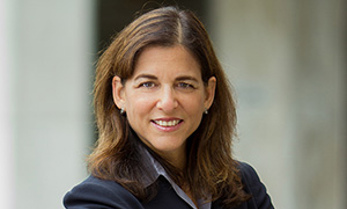
False Start on NIL: Public and Private Law Should Treat College Athletes Like Any Other Student, 11 Tex. A&M L. Rev. 785 (2024)
Instead of specialized private rules and public law that govern how student athletes monetize their name, image and likeness (NIL), Balsam writes that there should be a principle of nondiscrimination that deals in the same way with all college students who seek to benefit from and monetize their identities and publicity rights.
Alissa Bauer
Assistant Professor of Legal Writing
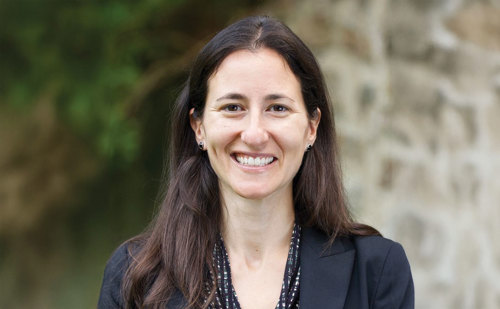
One Tort, Four IRACs, and Five Lessons About Rule Support Cases, BrooklynWorks, Faculty Scholarship. 1559
This article explores the significance of rule support cases, sometimes called case illustrations, rule explanations, or rule proof, in the IRAC structure. It uses a negligent infliction of emotional distress fact pattern to demonstrate five important lessons regarding how rule support cases help students set up effective and targeted application.
Anita Bernstein
Anita and Stuart Subotnick Professor of Law
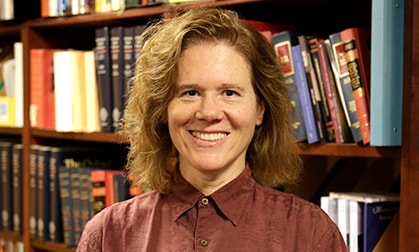
Renewing Products Liability with Semen, DePaul Law Review, Vol. 73, No. 2, p. 211, 2024, Brooklyn Law School, Legal Studies Paper No. 768
To renew is to combine old and new. Extending Bernstein’s earlier writings on the formation of new torts that located this combination in tort innovation, this article applies the lens of “renewing” within products liability to one product in particular, semen.
Bradley T. Borden
Professor of Law

Tax-Law Analysis, 18 Brook. J. Corp. Fin. & Com. L. 385 (2024)
Congress recognizes that there are areas of uncertainty in tax law and only imposes penalties if the authority supporting a reporting position is not adequate. To determine the strength of a reporting position, a tax advisor must be able to identify and analyze legal authority that relates to the reporting position and determine whether the weight of authority that supports the desired reporting position is sufficiently strong to outweigh the authority that is contrary to it. Borden explores how tax rules direct practitioners to accomplish this weighing process.
Robin Effron
Dean’s Research Scholar and Professor of Law
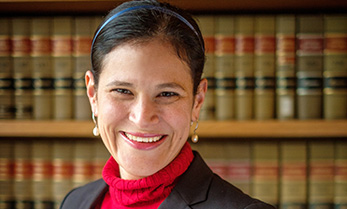
The Long Arm of Consent, __ NYU Annual Survey of American Law, Forthcoming
Recent shifts in Supreme Court perspectives have reignited debates around consent jurisdiction. Here, Effron (with Aaron Simowitz), delves into the historical evolution of consent jurisdiction, unveiling its varied dimensions and clarifying its legitimacy. It navigates through misleading interpretations and explores potential explanations for the validity of consent as a jurisdictional basis.
Maryellen Fullerton
Suzanne J. and Norman Miles Professor of Law
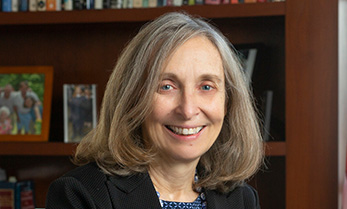
Temporary Protection for Ukrainians in the European Union: Why Now and When Again, 57 Vanderbilt Journal of Transnational Law 91 (2024)
The 2022 Russian invasion of Ukraine led to a successful rollout of the first EU-wide temporary protection program since legislation was enacted in 2001. Civil society played a central role in assuring legal status within the European Union for more than four million displaced individuals. Fullerton explores the patterns of civic engagement and social solidarity to strategize fruitful responses to future refugee crises.
Temporary Protection in the United States and the European Union: Same Words, Vastly Different Meanings, 9 University of Pennsylvania Journal of Law and Public Affairs 1 (2024)
“Summary Procedures” (with W-Y. Chen) Comparative Procedural Law and Justice (eds. B. Hess, M. Woo, L. Cadiet, S. Menétrey, and E. Vallines García) (2024)
Immigration and Nationality Laws of the United States: Selected Statutes, Regulations and Forms Thomson West Publishing Co. (with T.A. Aleinikoff, D. Martin, H. Motomura, J. Stumpf, P. Gulasekaram, and R. Cuison-Villazor) (2024)
Heidi Gilchrist
Professor of Legal Writing and Co-Director of Legal Research and Writing
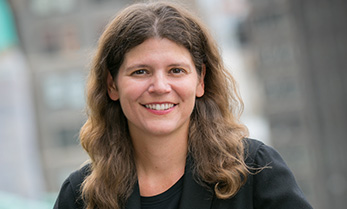
Ukraine, Moral Outrage, and International Law, 84 Ohio St. L.J. 1465 (2024)
Using the Russian invasion of Ukraine as a focal point, Gilchrist explores the role of emotion, specifically moral outrage, in international law. The paper addresses the question of whether the international community can harness the incredible moral outrage at the unprovoked Russian invasion of Ukraine to hold Russia accountable.
Cynthia Godsoe
Professor of Law
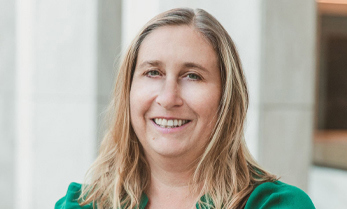
Disrupting Carceral Logic in Family Policing, 121 Michigan Law Review 939 (2023)
Using a review of Professor Dorothy Roberts’ book, Torn Apart: How the Child Welfare System Destroys Black Families and How Abolition Can Build a Safer World, as a springboard, Godsoe explores the carceral logics of the family-policing system and, particularly, the role of lawyers in maintaining and legitimating these logics.
Criminalizing Community, Policing Space: Conspiracy, Young Thug & the “Stop Cop City” Protestors, Harv. L. Rev. Blog (Aug. 28, 2024)
Kinship Care and Adoption Myopia (Brooklyn Law School, Legal Studies Paper No. 784, December 2024)
A Perfect Storm: Young People, False Confessions & Prosecutorial Involvement (Brooklyn Law School, Legal Studies Paper No. 783, December 2024)
Edward J. Janger
David M. Barse Professor of Law

Equity for Intermediaries: The Resolution of Financial Firms in Bankruptcy and Bank Resolution, Yale Journal on Regulation, Vol. 41, p.965, 2024
In this essay, Janger considers recent bank failures and bankruptcies of crypto intermediary to develop general principles for bankruptcy courts and other resolution institutions to mitigate the harms to customers and the financial system caused by financial misdeeds and regulatory failure.
Functional Tort Principles for Internet Platforms: Duty, Relationship, and Control, 26 Yale J.L. & Tech. 1 (2023)
Enterprise, Liability, and Insolvency: An Essay in Honor of Aaron Twerski, 18 Brook. J. Corp. Fin. & Com. L. 115 (2023)
Impact Ipsa Loquitur: A Reverse Hand Rule for Consumer Finance Susan Block-Lieb, Edward J. Janger, Cardozo Law Review, Vol. 45, No. 4, 2024; Fordham Law Legal Studies Research Paper No. 4802893; Brooklyn Law School, Legal Studies Paper Forthcoming
Yuvraj Joshi
Associate Professor of Law
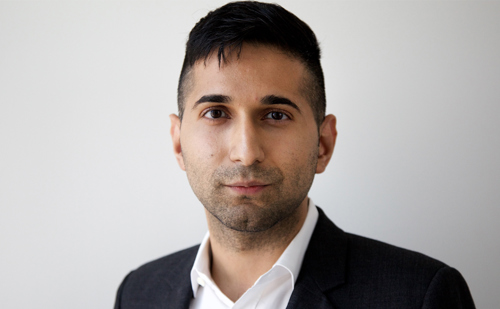
Racial Time, 90 University of Chicago Law Review 1625 (2023)
Racial time describes how inequality shapes people’s experiences and perceptions of time. This article argues that U.S. law embodies dominant interests in time. By inscribing dominant experiences and expectations of time into law, the Supreme Court enforces unrealistic timelines for racial remedies and “neutral” time standards that disproportionately burden subordinated groups.
Racial Equality Compromises, 111 Cal. L. Rev. 529 (2023)
Joy Kanwar
Professor of Legal Writing
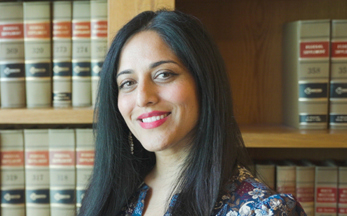
Writing and Analysis in the Law, Foundation Press (April 2024)
This standard-bearing book’s 8th, co-written with Elizabeth Fajans and Helene S. Shapo, provides a guide to legal writing, focusing on thoughtful, thorough analysis and clear organization in written communications. It responds to legal education’s increased attention to professional identity and cultural competence, provides an expanded section on inclusive language, and discusses generative artificial intelligence.
Catherine Y. Kim
Don Forchelli Professor of Law
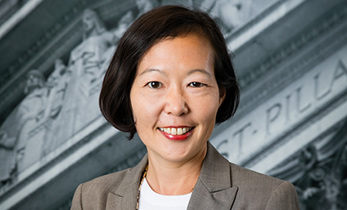
Citizenship Outside the Courts, 57 U.C. Davis L. Rev. 253 (2023)
To what extent should political actors determine constitutional citizenship? Kim examines three pivotal episodes from U.S. history involving the contestation of citizenship for Black Americans in the early to mid-19th century; the denial of citizenship to Chinese Americans in the 1882 -1943 Exclusion Era; and the stripping of citizenship from American women who married noncitizens pre-1922.
Adam Kolber
Professor of Law

Punishment for the Greater Good, (Oxford University Press, June 2024)
In this new book on criminal punishment, Kolber asks: What, if anything, justifies the suffering and deprivation of liberty associated with incarceration and other forms of punishment? He defends a “consequentialist” approach that focuses on deterring, incapacitating, and rehabilitating offenders over the more common “retributivist” approach that focuses on deserved suffering.
Shirley Lin
Associate Professor of Law
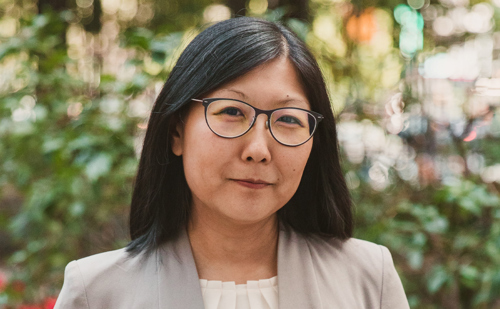
Race, Solidarity, and Commerce: Work Law as Privatized Public Law, 55 Ariz. St. L.J. 813 (2023)
What if work law allowed us to understand racism as central to legal liberal frames, rather than ancillary or topical? Deploying history and political theory, Lin demonstrates how public/private dyads within work law generated unworkable, often divisive conceptions of race and commerce, hindering our pursuit of a thriving, multiracial democracy.
James A. Macleod
Professor of Law and Director of the Center for the Study of Law, Language and Cognition
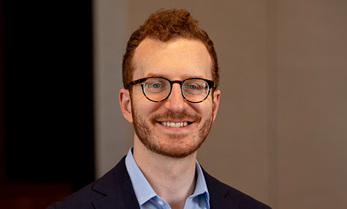
Evidence Law’s Blind Spots, 109 Iowa L. Rev. 189 (2023)
Evidence law is about information disclosure: what should we tell the jury, and what should we hide from it? Macleod reveals two blind spots in the way evidence law makes these disclosure choices: namely, biased gap-filling and systemic injustice. He then argues for reforming the rules governing prior conviction evidence and begins to sketch out a new, broader vision of evidence law.
Christina Mulligan
Professor of Law
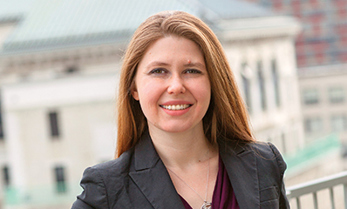
Diverse Originalism, History, and Tradition, 99 Notre Dame Law Review 1515 (2024)
The Supreme Court's New York State Rifle & Pistol Ass'n v. Bruen decision appears to be an originalist opinion, ostensibly looking for the meaning of the Constitution's text through the public's understanding of its language. But the court failed to follow a public meaning originalist methodology, leading to two unfortunate outcomes.
Prianka Nair
Assistant Professor of Law & Director of the Disability and Civil Rights Clinic
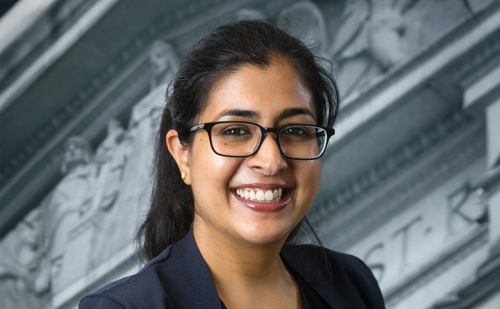
Surveilling Disability, Harming Integration, 124 Colum. L. Rev. 197 (2024)
Nair’s essay breaks new ground by centering disability discrimination in an analysis of surveillance, demonstrating how surveillance systems, ostensibly designed to protect those with disabilities, instead embed punitive, carceral practices within therapeutic and community-based settings. Such systems can also result in a constrained and superficial idea of integration in violation of federal anti-discrimination laws.
Naveen Thomas
Assistant Professor of Law
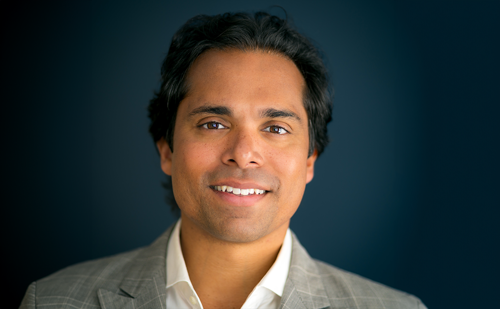
Mythical Adverse Effect, 73 Emory L.J. 887 (2024)
The material adverse effect definition is among the most intensely negotiated provisions in M&A contracts. Challenging conventional wisdom, Thomas applies legal and economic analysis to explain that, under Delaware law, parties should not customize these definitions and should devote their limited time and leverage to more impactful terms instead.
Stratos Pahis
Associate Professor of Law
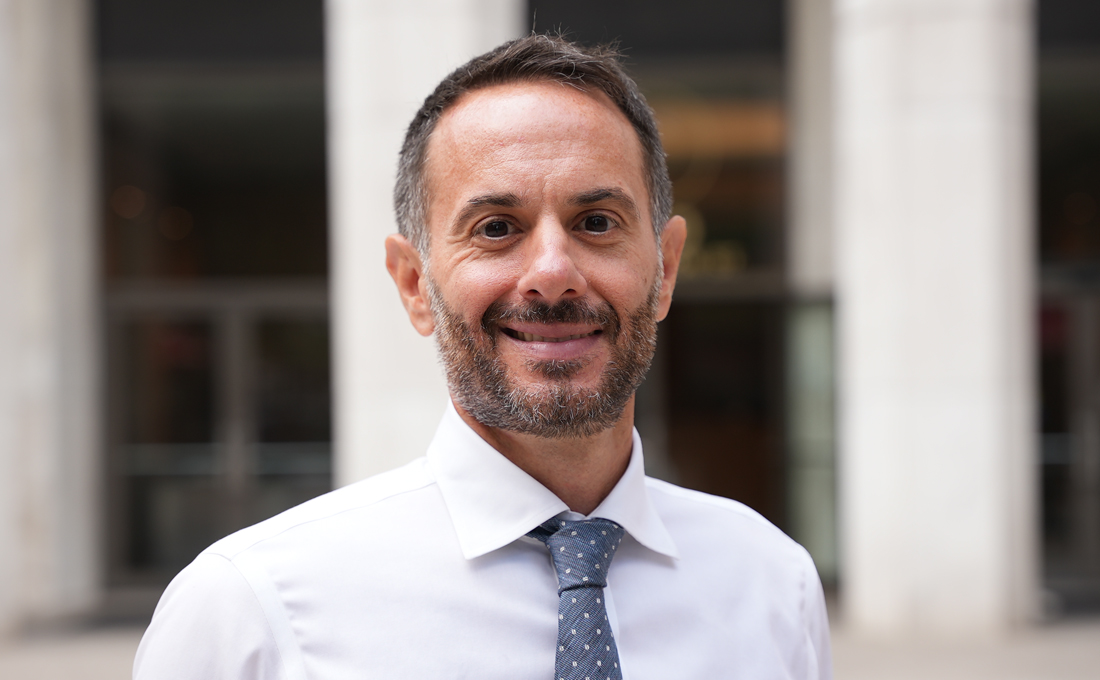
Appeals After the Appellate Body, 23 World Trade Rev. 296 (2024) (peer reviewed)
The Appellate Body (AB) of the World Trade Organization (WTO) has not heard an appeal since 2019. This article explores how adjudicators and member states have navigated WTO dispute settlement in this post-AB world.
Rethinking International Investment Law: Form, Function & Reform 63 Va. J. Int'l L. 447 (2023)
Anna Roberts
Professor of Law
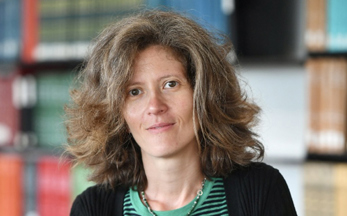
Models and Limits of Federal Rule of Evidence 609 Reform, 76 Vand. L. Rev.1879 (2023)
Federal Rule of Evidence 609, which permits the use of certain convictions to attack the “character for truthfulness” of witnesses, is widely criticized. Roberts presents three responses, including a model for how one might rewrite the rule, a set of proposals for judges and prosecutors, and an exploration of abolitionist concerns.
Maria Termini
Professor of Legal Writing and Co-Director of Legal Research and Writing
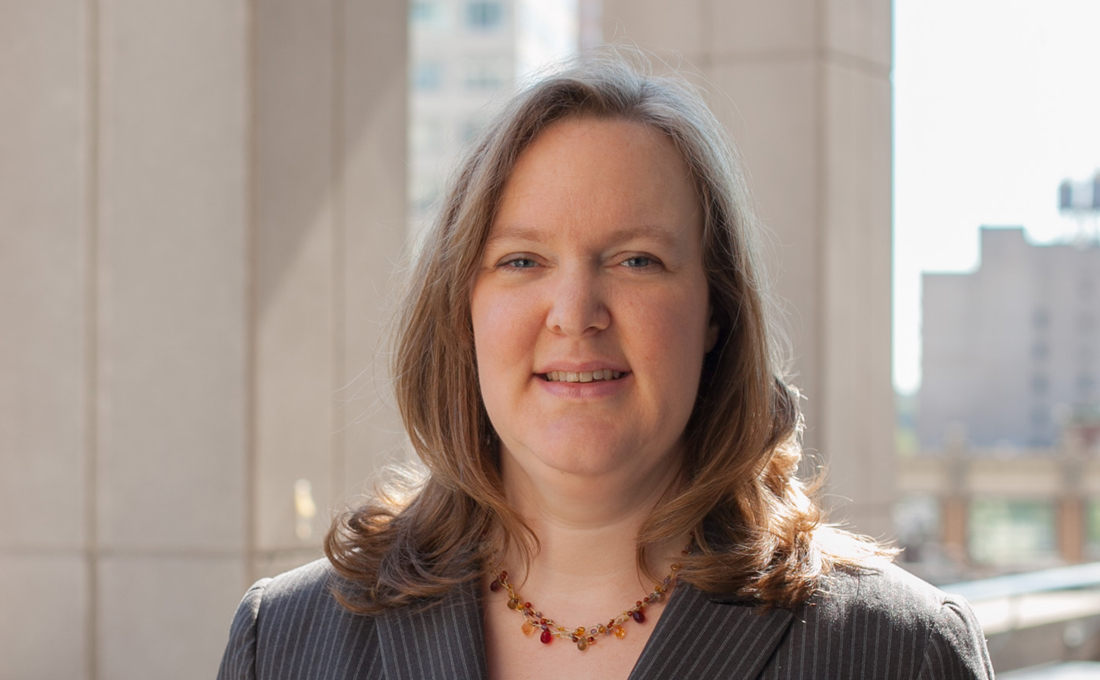
Negative Language in Legal Writing, Legal Communication & Rhetoric: JALWD 20 (2023)
Conventional wisdom holds that legal writers should be positive; however, recent legal writing scholarship has explored the benefits of negativity that stem from “negativity bias.” Termini distinguishes between two types of negative language used in legal writing: negation and negative valence, and proposes six principles to guide legal writers in choosing between positive and negative language.
2023 Faculty Scholarship
Miriam Baer
Vice Dean and Centennial Professor of Law

Myths and Misunderstandings in White-Collar Crime (Cambridge University Press, 2023)
Using real-world examples to explore the pathologies that hamper our ability to understand and redress white-collar crime, Baer’s book provides a step-by-step framework for reorienting the ways in which we prohibit, enforce, and discuss white-collar crime.
Bradley Borden
Professor of Law

Dialogue Debunking the Section 1031 Holding Period Myth, Tax Notes Federal, V. 179, p. 43, (April 3, 2023)
Using a hypothetical dialogue between a tax adviser and an exchanger, Borden shows that the section 1031 qualified use requirement does not impose a holding period requirement, and that suggestions otherwise appear based solely on perceptions of the likelihood of audit or the issue being raised on audit, which factors are prohibited in giving tax advice.
James Fanto
Gerald Baylin Professor of Law
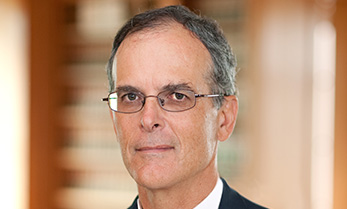
Broker-Dealer Compliance: A Case-based Guide to Compliance Program Elements and Practices (Edward Elgar, 2023)
A comprehensive guide that reviews the state of broker-dealer compliance, both from general and practical perspectives, Fanto’s book makes use of legal scholarship and behavioral and organizational literature on compliance, which has grown exponentially in recent years.
Marsha Garrison
1901 Distinguished Research Professor of Law
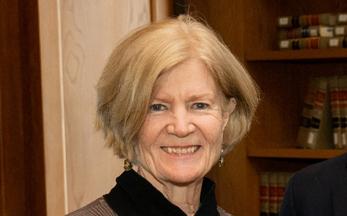
Family Life, Family Law, and Family Justice: Tying the Knot (Routledge, 2023)
Combining history, social science, and legal analysis, Garrison charts the evolution and interdependence of family life and family law, portrays current trends in family life, explains the pressing policy challenges these trends have produced, and analyzes the essential family law changes needed to meet these challenges.
Andrew Gold
Professor of Law
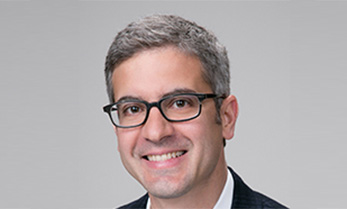
The American Law Institute: A Centennial History (Oxford Academic, 2023)
In honor of the American Law Institute’s Centennial, the book features a series of original essays authored by leading experts in their fields, including contract, tort, property, and criminal law, often including current and former Restatement Reporters, and is edited by Gold and Stanford Law School Professor Robert W. Gordon.
Susan Herman
Ruth Bader Ginsburg Professor of Law

An Advanced Introduction to US Civil Liberties (Edward Elgar, 2023)
Herman provides a kaleidoscopic overview of key U.S. civil liberties, including freedom of speech, press, assembly, and religion, limitations on search and seizure, due process in criminal proceedings, autonomy rights, rights of equality, and democratic participation.
Alexis Hoag-Fordjour
Dean’s Research Scholar, Assistant Professor of Law, and Co-Director of the Center for Criminal Justice
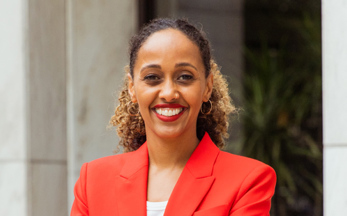
White Is Right: The Racial Construction of Effective Assistance of Counsel, 98 New York University Law Review 770 (2023)
Examining the race-constructing role the ineffective assistance of counsel standard plays in determining whether a defendant received effective representation, Hoag-Fordjour outlines a structural framework for understanding right to counsel jurisprudence.
Joy Kanwar
Professor of Law

Stories from the Negative Spaces: United States v. Thind and the Narratives of (Non)Whiteness, 74 Mercer Law Review 801 (2023)
The Supreme Court’s decision in United States v. Bhagat Singh Thind turned a century old in February 2023. Other than for scholars who have examined its impact on American immigration history, it remains a relatively unknown case to the general public. But its impact is monumental when it comes to the history of Asians—and in particular, South Asians—in America. The case captures its own historical moment and provides lessons for the ways in which we understand race, citizenship, and what it means to be an American today.
Christina Mulligan
Professor of Law

Data Property, 72 American University Law Review 829 (2023) (with James Grimmelmann)
From family photos to Google's Search Index, data has become one of society’s most important resources. But there is a gaping hole in the law’s treatment of data. Property law does not recognize the intangible data itself as a thing that can be impaired or converted, even though it is the data that you care about, and not the medium on which it is stored. The authors write that it's time to fix that.
Dana Brakman Reiser
Centennial Professor of Law
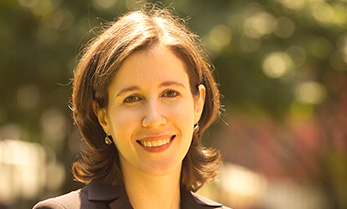
For-Profit Philanthropy: Elite Power and the Threat of Limited Liability Companies, Donor-Advised Funds, and Strategic Corporate Giving, (Oxford University Press, 2023)
Exposing a migration of business practices, players, and norms into philanthropy, Brakman Reiser, with co-author Steven A. Dean, explains how this shift strains the regulatory regime sustaining public trust in elite generosity through accountability and transparency. They propose legal reforms and private solutions to restore that trust.
Anna Roberts
Professor of Law

Criminal Terms, 107 Minnesota Law Review 1495 (2023)
While recent legal scholarship has identified other subtle ways in which we send pro-carceral messages, vocabulary change has not been part of it, but it should be, in recognition of the harm that such messages can do, Roberts writes.
Faiza Sayed
Assistant Professor of Law and Director of the Safe Harbor Project

The Immigration Shadow Docket, 117 Northwestern University Law Review 893 (2023)
Each year, the Board of Immigration Appeals (BIA), which reviews decisions of immigration judges and decides the fate of thousands of noncitizens, publicly issues 20 to 30 published, precedential decisions. But most of the BIA’s decision-making happens on its unpublished “immigration shadow docket,” whose harms include the creation of “secret law” that is largely inaccessible to the public.
Jocelyn Simonson
Professor of Law & Associate Dean for Research and Scholarship
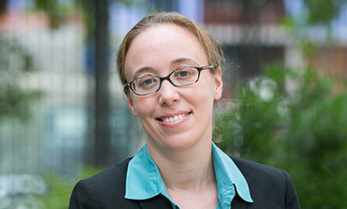
Radical Acts of Justice: How Ordinary People Are Dismantling Mass Incarceration (The New Press, 2023)
The answer to mass incarceration lies not with experts and pundits, but with ordinary people taking extraordinary actions together, Simonson writes in her new book, which examines the many ways people unite to reconceive ideas of justice and safety.
Irene Ten Cate
Associate Director of the Block Center for International Business Law and Associate Professor of Legal Writing

Splitting the Baby, 61 Columbia Journal of Transnational Law, 338 (2023)
Compromise Awards in international commercial arbitration are widely condemned, but it is hard to articulate what is wrong with such awards if tribunal members genuinely disagree about the law or the facts. This article argues that the primary harm of compromise lies in its effects on the quality of individual and collective deliberation. These flaws, in turn, taint the award by turning reason-giving into an exercise in justification rather than an opportunity for continued assessment.
William Araiza
Stanley A. August Professor of Law

Regents: Resurrecting Animus/Renewing Intent, 51 Seton Hall Law Review 983 (2021)
Julian Arato
Professor of Law
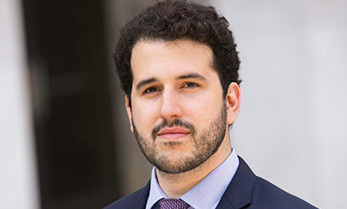
The Elastic Corporate Form in International Law, 62 Virginia Journal of International Law __ (forthcoming 2021)
Jodi Balsam
Associate Professor of Clinical Law

Criminalizing Match-Fixing as America Legalizes Sports Gambling, 31 Marquette Sports Law Review 1 (2020)
Anita Bernstein
Anita and Stuart Subotnick Professor of Law

Three Cohorts’ Vulnerabilities on the Issue of Sexual Consent, 73 Oklahoma Law Review 1 (2020)
Heidi K. Brown
Director of Legal Writing
and Professor of Law
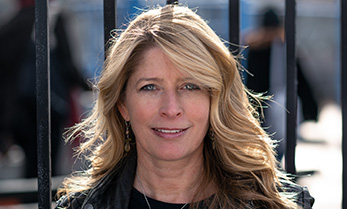
The Flourishing Lawyer, (ABA Book Publishing, May 2022)
Wilfred Codrington III
Assistant Professor of Law
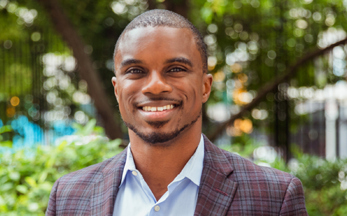
The People’s Constitution: 200 Years, 27 Amendments, and the Promise of a More Perfect Union (with John Kowal) (The New Press 2021)
Steven Dean
Professor of Law
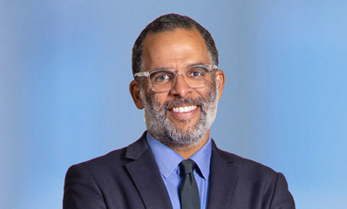
Filing While Black: The Casual Racism of the Tax Law, Utah Law Review __ 801 (2022)
The tax law’s race-blind approach produces bad tax policy. The racial bias long tolerated—and sometimes exploited—by tax scholars and policymakers affects all aspects of the tax law. In 1986, Sam Gilliam was denied tax deductions that others in similar situations enjoyed. In 2000, Liberia was threatened with sanctions for being a tax haven, but Switzerland was not. In 2014, Eric Garner died in police custody after being suspected of evading a tax. In each instance, anti-Blackness played a role in ways the tax law either ignores or actively leverages.
Robin Effron
Professor of Law

Forum Selection Clauses, Non-Signatories, and Personal Jurisdiction, __ Notre Dame Law Review __ (forthcoming 2021) (with John Coyle)
Heidi Gilchrist
Assistant Professor of Legal Writing

“Act Normal or Leave”: When Law and Culture Collide, 26 Columbia Journal of European Law 54 (2021)
Cynthia Godsoe
Professor of Law

The Place of the Prosecutor in Abolitionist Praxis, 69 U.C.L.A. Law Review (2022)
Progressive prosecutors have been widely hailed as the solution to mass incarceration, but Godsoe argues they are not the magic bullet. Prosecutors' institutional power and ethical mandate to "do justice" can be repurposed to start reversing decades of building the carceral state, but transforming the system entails ceding power to communities, divesting criminal system resources, and investing in societal supports that keep people safe.
Roberta Karmel
Centennial Professor of Law
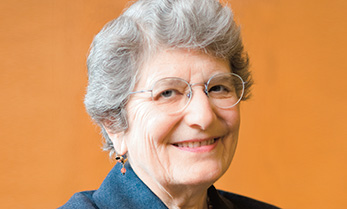
Little Power Struggles Everywhere: Attacks on the Administrative State at the Securities and Exchange Commission, 72 Administrative Law Review 207 (2020)
Catherine Y. Kim
Professor of Law

Rights Retrenchment in Immigration Law, 55 U.C. Davis L. Review 1283 (2022)
The Modern Court’s stance toward immigrants tells a story of rights retrenchment, a scaling back from even the modest gains of the 20th century. In areas including the right to habeas corpus, procedural due process, discrimination, free speech, and detention, noncitizens today enjoy even fewer constitutional protections than they did at the end of the last century.
Minna J. Kotkin
Professor of Law

Reconsidering Confidential Settlements in the #MeToo Era, 54 University of San Francisco Law Review 517 (2020)
Sarah Lorr
Assistant Professor of Clinical Law & Co-Director of the Disability and Civil Rights Clinic

Unaccommodated: How the ADA Fails Parents, 110 California Law Review 1315 (2022)
Thirty years after Congress passed the Americans with Disabilities Act (ADA), discrimination and ingrained prejudices against individuals with intellectual disabilities—especially poor Black and brown parents with disabilities—continue. Despite promising federal intervention with the promulgation of the new technical assistance in 2015, both family and federal courts still fail to vindicate the rights of parents with disabilities, by sidestepping responsibility for parents’ claims under the ADA. For the ADA to fulfill its promise, parents with intellectual disabilities must have a viable legal avenue to enforce it.
James A. Macleod
Assistant Professor of Law

Finding Original Public Meaning, 56 Georgia Law Review __ (forthcoming 2021)
Kate Mogulescu
Associate Professor of Clinical Law

Your Cervix is Showing: Loitering for Prostitution Policing as Gendered Stop & Frisk, 74 University of Miami Law Review Caveat 68 (2020)
Frank Pasquale
Professor of Law

New Laws of Robotics: Defending Human Expertise in the Age of AI, (Harvard University Press 2020)
Vijay Raghavan
Assistant Professor of Law
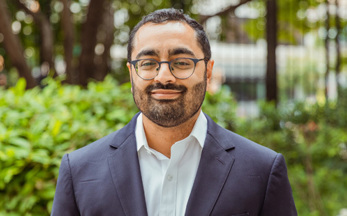
Shifting Burdens at the Fringe, 102 Boston University Law Review 1301 (2022)
Raghavan offers a new descriptive account of consumer financial regulation. Leveraging insights from the recent literature on the legal design of money, he suggests that consumer financial regulation is best understood as a way to shift the incidence of financing the creation of new money and not as an intervention in private exchange. He considers how this framing can change the way we justify consumer law and regulate consumer credit markets.
Vijay Raghavan
Assistant Professor of Law

Consumer Law's Equity Gap, 3 Utah Law Review __ (forthcoming 2022)
K. Sabeel Rahman
Associate Professor of Law
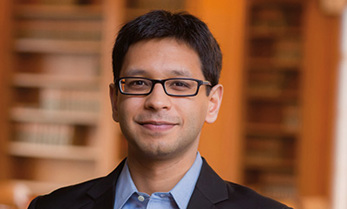
Building a Law-and-Political-Economy Framework: Beyond the Twentieth-Century Synthesis (with Jedediah S. Britton-Purdy, David Singh Grewal, Amy Kapczynski), 129 Yale Law Journal 1784 (2020)
Jayne Ressler
Associate Professor of Law
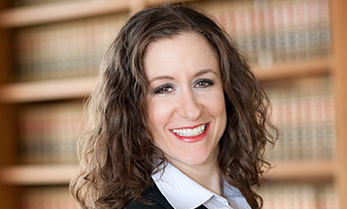
Anonymous Plaintiffs and Sexual Misconduct, 50 Seton Hall Law Review 955 (2020)
Alice Ristroph
Dean’s Research Scholar and Fagen Professor of Law

The Curriculum of the Carceral State, 120 Columbia Law Review 1631 (2020)
Lawrence M. Solan
Don Forchelli Professor of Law

Revisiting a Classic Problem in Statutory Interpretation: Is a Minister a Laborer? (with Tammy Gales), 36 Georgia State University Law Review 491 (2020)
Aaron Twerski
Irwin and Jill Cohen Professor of Law
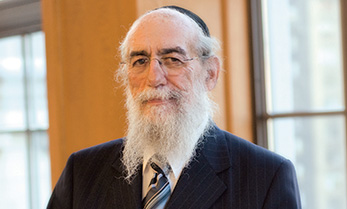
An Essay on the Quieting of Products Liability Law, 105 Cornell Law Review 101 (2020)

